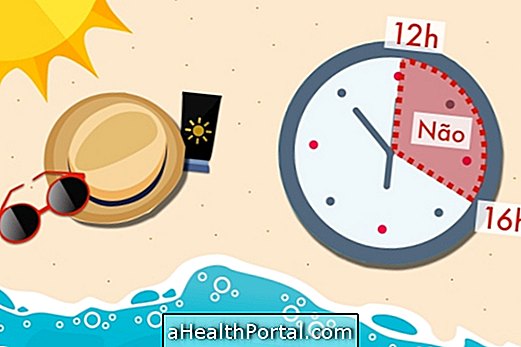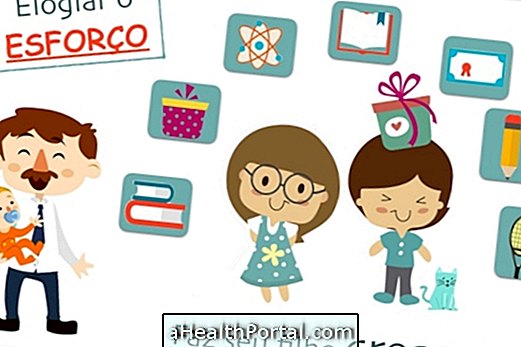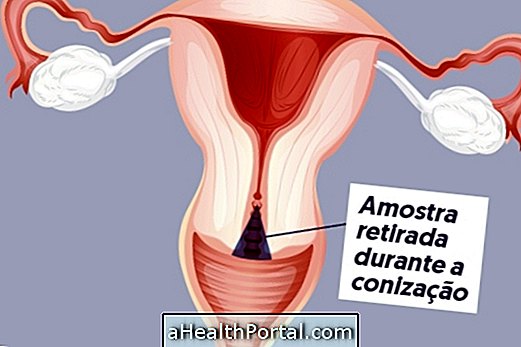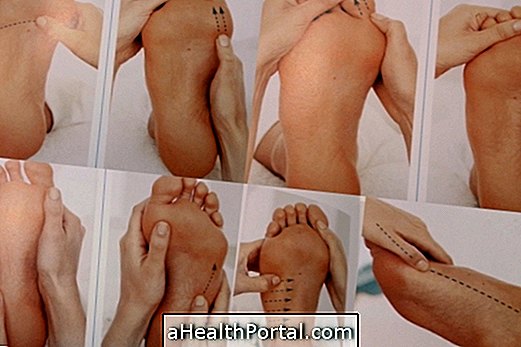Excessive stress can lead to weight gain, stomach ulcers, heart changes and high blood pressure due to increased cortisol, which is the hormone responsible for contributing to the proper functioning of the immune system. Learn more functions of this hormone in: Cortisol.
Generally, stress is caused by overwork, schedule instability, illness situations or overloading of personal tasks, and one of the best ways to get rid of stress is to devote 30 minutes a day to doing relaxing activities such as listening to music, taking a quiet bath or walking rest in the sand because it helps lower cortisol levels, relaxes and lowers heart rate.
However, in some cases, it may be necessary to go to the doctor to take medications that help decrease anxiety by conducting psychotherapy sessions to learn relaxation techniques and effective ways to manage time.
Consequences of stress
Stress can lead to problems or illness in most organs and systems and can lead to:

- Hair loss and thinner wires;
- Weak and brittle nails ;
- Increased appetite with weight gain or weight loss due to the constant feeling of hot flashes and lack of appetite;
- Difficulty falling asleep, which causes frequent tiredness;
Frequent diseases such as urinary infections, gastroenteritis or influenza.
Stress can also lead to the development of more serious problems like metabolic syndrome such as increased onset of diabetes, high levels of triglycerides and bad cholesterol or irritable bowel syndrome.
In addition, frequent stress over time can compromise virtually every organ or system in the body and, in more severe cases, can lead to infertility or even suicide. Also learn to recognize the symptoms of nervous breakdown.
How to reduce stress from work
To decrease the levels of work stress, it is necessary to:

- Take a vacation every year : vacations help forget everyday obligations;
- Take small regular breaks during work time : pausing, even for 5 minutes, helps you relax and organize thinking by increasing production and profitability;
- Perform stretches: at work, the body also needs to relax and reduce tension. Here's what to do in: Stretching exercises to do at work.
- Speak to the boss: especially when there is some difficulty or problem;
- Dividing tasks: The division of tasks helps to reduce the overload of each worker;
In addition, putting yourself in the other person's place is one of the ways to reduce labor conflicts, so it is important to be tolerant and cautious in order to be able to evaluate all situations well and anticipate what can happen from positive and negative.
How to reduce emotional stress
Normally, stress arises due to the difficulty in managing the time between professional tasks and family obligations, and therefore the most important to get rid of excess stress includes:
- Use a schedule to organize the routines of the week, scheduling from week to week.
- Distribute the tasks among the different elements of a family: children should be included, assigning small tasks, such as making the bed or storing the room, for example;
- Focus on current needs and forget the past;
- Save money by spending only on essential goods to avoid debt, which is one of the causes of excess stress;
- Avoid situations that cause malaise, for example, if the news of the television causes tension or the intense traffic causes anxiety is important to look for solutions;
- Doing relaxing leisure activities : spending at least 30 minutes a day doing calming activities such as listening to music, taking a shower, walking resting in the sand or on the ground or walking outdoors can help reduce stress.
In addition, you should drink a soothing tea, such as chamomile or St. John's Wort, and avoid caffeinated beverages and foods because it causes excitement of the central nervous system which leads to increased stress.
To know how to control anxiety read:
- 4 Steps to Controlling Negative Emotions
- How to control tachycardia





















.jpg)



